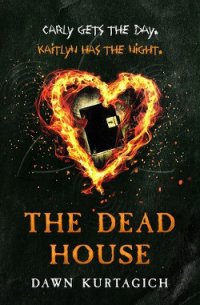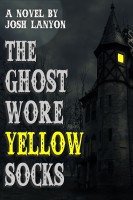The Brief History of the Dead - Brockmeier Kevin (первая книга txt) 📗
It had occurred to him that he ought to try the old breath-on-the-mirror test he was familiar with from so many movies. But then again, he reasoned, it was hardly necessary when the person in question was so obviously dead.
He and Joyce had never known whether to treat each other as friends or antagonists. Or maybe it was just that their antagonism and their friendliness had been so inextricably tied up with each other that it was impossible for anybody to tell the two apart. It was through their arguments, their bickering, that they expressed their fundamental goodwill toward each other, and they both took a particular pleasure in pretending they disliked the other more than they did. It was part of the game. For Puckett to admit that he was upset over losing Joyce, then, would have been a violation of the rules.
To tell the truth, though, he wasn't as upset as he had guessed he would be. After all, there was a part of him that had known this was coming for a long time. He only wondered how long it would be before it came for him, as well.
It would have taken him the rest of the day and a good portion of the next to break into the ice and lay a respectable grave for Joyce, and it seemed more important to cover some more ground before the horizon swallowed all the good light, so he decided to bury him after he made it across the bay to the second transmitter. He started up the sledge and began following his compass over the ice. It wasn't long, though, before he felt himself becoming feverish and began losing awareness of his surroundings. It was the virus coming on – he knew it. His skin seemed to be coming loose from his skeleton, like a star casting off its final wobbling shell of gas. His eyes watered over and gradually lost their focus. The last thing he remembered was waking for a few moments some indeterminate time later and watching as a great wall of ice and black rock slowly grew larger in his windshield. Then he fell asleep again, and there was the pinwheel of gold and silver light, and when he tried to touch it, the petals folded together into a single enormous pillar, as tall and wide as a redwood tree. It was only through a supreme effort of his will and imagination that he was able to compress the pillar into a small rod the size of a #2 pencil – which was indeed a #2 pencil, the same pencil he would later use to prepare his list.
Joyce was the first person he saw when he arrived in the city. Immediately he knew that he must be dead. Puckett took a step back, stumbling over his shoes.
"What are you doing here?" Joyce asked him, and Puckett asked the same question, "What are you doing here?" And then they argued about something for a while. And then they went their separate ways. And it felt good, it felt right, it felt just like old times.
Puckett had made no particular effort to stay in touch with Joyce, and he was pretty sure Joyce would say the same about him if anyone asked. But then staying in touch had not demanded any particular effort. Wherever they went, it seemed, they were destined to meet. Puckett could hardly walk into a bar or restaurant without finding Joyce at one of the tables, clicking the salt and pepper shakers together or making lean-tos out of the cardboard coasters, and if he was not there already, inevitably he would arrive within the next few minutes. He could not step out for a quick stroll, could not go shopping at the grocery store, without suddenly coming upon him at the deli counter or the back end of the soup aisle. They had run into each other at the movie theater, the gym, and the drug store, and at the random intersections of a thousand different streets. More than once Puckett had stepped out of a stall in a public restroom to find Joyce buckling his belt only one stall over. They were no longer surprised to see each other, and it was with a certain sense of fatality that they would take up whatever conversation they had left unfinished the last time they met.
Just one day after he told Joyce about the list he had made, for instance, Puckett ran across him on the ground floor of an office building. Puckett was dashing in to take a quick drink from the water fountain, and Joyce was walking across the black marble tiles of the lobby toward the elevators, and they saw each other and realized their paths were going to cross again. After a short pause Joyce said, "I would wager I remember about two thousand people total."
Puckett shook his head. "No, I'm telling you, it's much higher than that. I'm not talking about the number of people you can call to mind without any effort at all, you know. I'm talking about the number of people you're capable of remembering when the right chain of associations occur. Sit down and figure it out sometime."
"See, the difference between us is that you imagine your own memory is reliable, or at least reliable enough to offer up a basically trustworthy accounting of your life. And I don't. Not for a second."
"I doubt my memory is any more reliable than yours. I just happen to know mine a little better."
"Riddle me this then," Joyce said. "If everybody in the world remembered – what? fifty thousand people, you said? – then how would they all fit into a city the size of this one? This place is pretty big, but I don't think it's that big."
The next day they bumped into each other again, as they were cutting across the southwest corner of the square. Puckett said, "First of all, do you have any idea how extensive this city actually is?"
"Do you?"
"No, but I have a feeling it's a lot bigger than you imagine. A lot bigger than this one district, that's for sure. I did some asking around, and nobody seems to know how far the streets go. The closest I came was a guy who used to dabble in cartography. He said in almost ten years of mapping he had never once seen the end of the city. He said – and I quote – that if the city had a boundary line, it must have gone tearing off like a blue streak whenever he came around."
"Okay. Maybe. And what's your second of all?"
"How's that?"
"You said 'first of all.' Implying a second of all. So what's your second of all?"
"Well, second of all, when I say that we each remember fifty or a hundred thousand people, I don't mean fifty or a hundred thousand people that nobody else remembers. There's bound to be a lot of overlap. Both of us remember Laura, for instance. We both remember the folks from the office. And not that it makes any difference, but we both remember Meatyard and Weisz and Turner and those guys, too."
Their next encounter took place in a burger joint where they had both happened to stop for lunch. Four gray-haired Korean women were playing mah-jongg at one of the tables, and a couple of IAS officers were sitting at the counter silently scanning the room. They were still wearing their yellow collars, for some reason, though what damage was left to be done Puckett couldn't imagine.
Joyce began with, "I think it does make a difference, actually." "What does?"
"The fact that we remember Turner and Meatyard and the others. You said it didn't make a difference. I say that it does."
"I didn't mean that it doesn't matter at all. But it can't change what happened to them, can it?"
"Really? You don't think Lauras memory has changed what's happening to us?"
"Of course it has. But Laura is still alive. Or at least we presume she is." He took a sip of his coffee. Even after ten years of sobriety, he was still tempted to order a beer whenever he was eating a burger and fries. But, as always, he resisted the urge.
"Yes. And as long as we were alive, we were keeping some part of the rest of them alive, as well. Think about it, Puckett," Joyce said. "Think of all the people who must have vanished from this place after we died. Surely there was somebody who existed on this side only because you existed on the other. Can you really say that that doesn't matter?"




